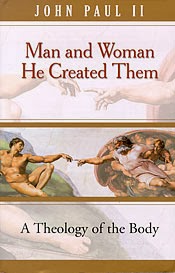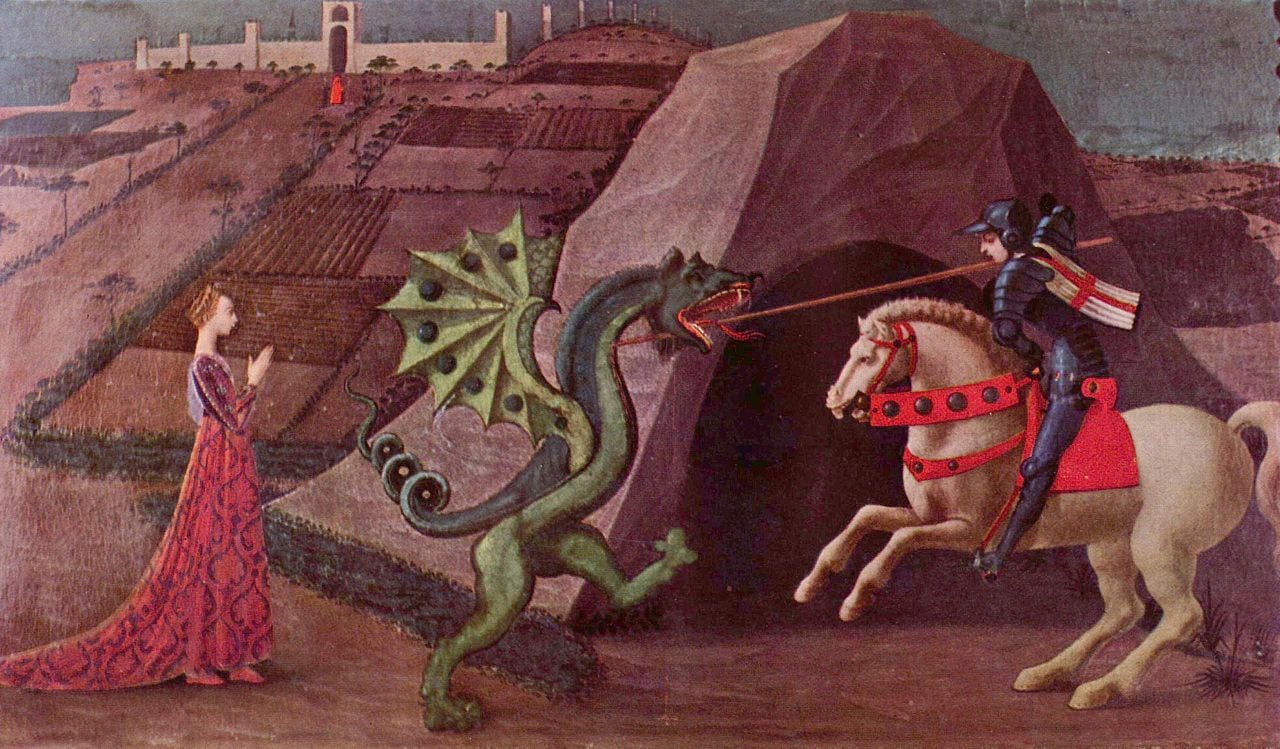This post first appeared at Through a Glass Brightly last year.
***
The movie Groundhog Day starring Bill Murray and Andie MacDowell turns 21 this year, and I wish I could take it out for a drink (“Sweet vermouth on the rocks with a twist, please.”). I feel as if I’ve seen this movie about as many times as Phil Connors lived that day. In college, my roommate and I decided to drive to the tiny hamlet of Punxsutawney, Pennsylvania for the real thing. (Warning: the movie bears very little resemblance to the phenomenon that is a thousand screaming drunk people in utter darkness. Learned that the hard way.) After spending the night in a car and freezing for two hours just waiting for a shuttle bus, the highlight of the day was buying a DVD copy of Groundhog Day in the town itself and then driving all the way back to our warm and cozy apartment to watch it.
I have high standards for movies, and I confidently declare that this one is the best movies made in my lifetime. Its universal appeal will ensure that it stands the test of time. And what I aim to show here is that the movie’s universal appeal is such because it is rooted in what Blessed John Paul II called the Theology of the Body (TOB).
 I came to know TOB in ways probably similar to many of you. I read some Christopher West in college. I’ve attended TOB lecture series and conference talks. I’ve done a few small group discussions over it with friends. I used it whenever I could when I taught high school theology. Then to prepare for this post, I read Michael Waldstein’s impressive and scholarly introduction to the work and finally mined the magnum opus itself for some choice quotes. But even after all of that, I think the best thing I can offer you is the flavah of the ideas as consciously digested and understood by me and less-consciously so by the people who made Groundhog Day. Still, in order to fix the discussion on a couple of key ideas, I will focus on two important fragments from the TOB (General Audience 32:4,6):
I came to know TOB in ways probably similar to many of you. I read some Christopher West in college. I’ve attended TOB lecture series and conference talks. I’ve done a few small group discussions over it with friends. I used it whenever I could when I taught high school theology. Then to prepare for this post, I read Michael Waldstein’s impressive and scholarly introduction to the work and finally mined the magnum opus itself for some choice quotes. But even after all of that, I think the best thing I can offer you is the flavah of the ideas as consciously digested and understood by me and less-consciously so by the people who made Groundhog Day. Still, in order to fix the discussion on a couple of key ideas, I will focus on two important fragments from the TOB (General Audience 32:4,6):
4….[A]s a person, “man is the only creature on earth that God willed for itself” and at the same time the one who “cannot fully find himself except through a sincere gift of self” (Gaudium et Spes, 24:3). Concupiscence in general—and the concupiscence of the body in particular—attacks precisely this “sincere gift”: it deprives man, one could say, of the dignity of the gift, which is expressed by his body through femininity and masculinity, and in some sense “depersonalizes” man, making him an object “for the other.” Instead of being “together with the other”—subject in unity, or better, in the sacramental “unity of the body”—man becomes an object for man, the female for the male and vice versa” […] 6. “Concupiscence brings with it the loss of the interior freedom of the gift. The spousal meaning of the body in linked exactly to this freedom. Man can become a gift—that is, man and woman can exist in the relationship of the reciprocal gift of self—if each of them masters himself. Concupiscence, which manifests itself as a “constraint ‘sui generis’ of the body,” limits and restricts self-mastery from within, and thereby in some sense makes the interior freedom of the gift impossible.
Summed up in one sentence, JPII is saying that the man who is ruled by concupiscence (which is the desire to possess something as an object to be exploited) cannot freely give of himself in love until he first mortifies those desires.
For my purposes, that man is Pittsburgh weatherman Phil Connors (Murray). The story functions as a philosophical thought experiment: what if you woke up every day and discovered it was yesterday? For Phil, that day is February 2nd, Groundhog Day.
When we first meet him he is an arrogant, cynical, prima donna. He is a man driven by concupiscent desires. He is fixated on the idea of landing a bigger network and deeply resentful of the fact that he has to cover the groundhog festival in Punxsutawney for the fourth year in a row.
An attractive, vivacious new producer, Rita (MacDowell) has just joined the news team and she immediately catches Phil’s eye while playing with the studio’s green screen just like a happy child might. Another weatherman tells Phil that she’ll be accompanying him on the trip to Punxsutawney and says, “She really nice. You two are going to have a lot of fun.”
Even though we viewers see Phil’s face soften when first sees Rita, he replies, “Mmmhmm. She’s fun. But not my kind of fun.” His comments and actions suggest that his preferred fun is of a selfish kind. When he says Rita is not his kind of fun, he means that her innocent joyfulness is not sexy — or at least it doesn’t promise the gratification of sexual desire. He’s saying that she does not arouse his lust and thus is not easily objectified for his pleasure.
Phil lives for comfort and status. Throughout the story, those desires are mortified in many different ways so that higher desires can take their place. Even before the main trick of the narrative begins, a seemingly providential transformation of Phil’s life is foreshadowed in several scenes in which Phil behaves arrogantly and then is humbled by some apparently random bodily discomfort. After predicting that there would be no blizzard, he gets out of the car with no coat on and shouts, “I make the weather!” at the police officer who is closing the road. He trembles and chatters with cold, a fitting refutation of his self-absorbed claim. Shortly after that, he requests a special phone line for “celebrities” and is hit in the head with a snow shovel.
That night, after saying that he’ll spend his night taking a hot shower and reading Hustler, the faucet douses him in icy water. Following this pattern, the time warp functions as another example of divine justice, as if God is saying, “No. You’re doing it wrong. Try again.”
Just as one might expect, the first recurrence of Groundhog Day is just plain weird for Phil. He has no idea what is going on. He asks Rita for a good hard slap on the face and she happily obliges him. He also pops an aspirin. He initially thinks that stimulating his flesh will fix the problem, then he tries numbing it. The following time, he asks Rita for help, and after she expresses her annoyance, he seeks medical, then psychological evaluation. With no answers to be found there, he turns to bowling and boozing with a couple of locals. He shares with them what is happening to him, and remembers his best day ever:
I was in the Virgin Islands once. I met a girl. We ate lobster, drank pina coladas. At sunset we made love like sea otters. That was a pretty good day. Why couldn’t I get that day over and over and over?
He soon realizes that he can have a day like this if he just puts his mind to it. So, he pursues a veritable feast for the flesh with no strings attached. The next day at the diner, he gorges himself on pastries, drinks coffee straight from the carafe, and smokes cigarettes. Rita, watching in disgust, leans in and recites to him part of a poem by Sir Walter Scott:
The wretch, concentred all in self,
Living, shall forfeit fair renown,
And, doubly dying, shall go down
To the vile dust from whence he sprung,
Unwept, unhonored, and unsung.
How perfectly apt for Phil in this moment. Still too pleasure driven to even hear her, he laughs and moves right along with his self-indulgent day, transitioning from food to sex. On his way out of the diner, he collects some biographical information from a very attractive young woman named Nancy so that he can use it to woo her the next day. His plan works perfectly and he is able to have a Virgin Islands-esque romp with her, but in the course of it he reveals that he is fantasizing about Rita — the childlike, good woman — in the midst of it.
The next day, he robs a bank truck and spends the money on a fancy car, a Clint Eastwood costume, and manages to trick a woman into dressing up as French maid. Phil is certainly having his “kind of fun.” But what’s interesting here is that he is not satisfied with replaying versions of this over and over. He knows that he could have his way with Nancy or the French maid every day; but he realizes that what he really wants is Rita.
He asks her what she is looking for in a man, hoping to exploit the information and use her in the same way that he used Nancy. She tells him she what everybody wants: “career, love, marriage, children.” John Paul II would smile and nod at this. Then Rita gives her list of desired attributes:
First of all, he’s too humble to know he’s perfect. He’s intelligent, supportive, funny. He’s romantic and courageous. He’s got a good body but doesn’t have to look in the mirror every two minutes. He’s kind, sensitive and gentle. He’s not afraid to cry in front of me. He likes animals and children, and he’ll change poopy diapers. And he plays an instrument and he loves his mother.
What she has described is a man of virtue—a man is who is striving in self-mastery and therefore has the freedom of authentic self-gift in the way that TOB prescribes. Phil doesn’t realize this in the beginning. Instead he views it more as a cheat sheet to getting her into bed. He orchestrates a perfect day for the two of them, and they have many delightful moments. At one point, they build a snowman together, an act that symbolizes the creative power of love in the rendering of another human being. They even talk about childhood and children. Phil says, “I haven’t done this since I was a kid.” Rita: “Me neither. It’s fun!” Phil: “Yeah—good clean fun.” He knows this is her kind of fun, and adds that he hopes to do this someday with his own children.
At this point, he is doing and saying what he knows she wants to see and hear. He is not acting genuinely and he’s not giving of himself. He taking advantage of her and objectifying her for his own pleasure. I think it’s fair to point out that Phil really doesn’t know any better. He believes that Rita is good and he wants her goodness somehow, but he is so absorbed in himself that he can’t conceive of offering himself in order to receive her. Rita certainly feels drawn to Phil, but she is firm about not wanting to “spoil it” by making their relationship sexual too soon. Phil thinks that sex is the ultimate goal of the relationship and he fears that all he has is that one day, so he is determined to figure out the exact formula of words and actions that will land her in his bed. But no matter what he does, each day he winds up seriously offending her as expressed in a hilarious sequence of face-slaps.
By the end of it, Phil is angry, bitter, and depressed. He hisses a kind of curse at Rita: “I’ll give you a prediction—it’s gonna be cold, it’s gonna be gray, and it’s gonna last you for the rest of your life.” Then, he snaps like a crazy man, kidnaps the groundhog whom he has decided to blame for his ill-fate, and kills the two of them by driving a truck off a cliff.
After that comes the despair sequence, in which he commits suicide in just about every way he can fathom day after day. This is the ultimate irresponsible act against his body. He may be imagining it as a kind of mortification, and it may function that way in the story; but it is certainly not the answer to his fundamental desires.
















